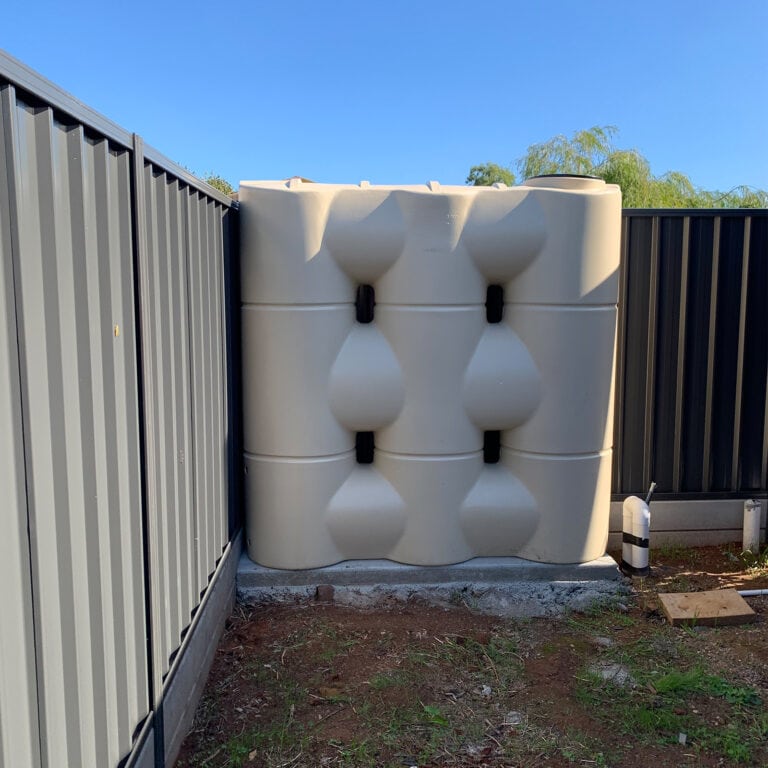Discover the Significance of Rainwater Tanks for Sustainable Water Preservation Efforts
In the world of lasting water preservation, the application of rain storage tanks stands as a pivotal technique that advantages better assessment. The relevance of rainwater containers goes beyond mere storage space; it personifies a proactive method towards environmental stewardship and resource management. By checking out the multifaceted benefits of rainwater harvesting, a profound understanding of its prospective impact on water conservation efforts arises. Via a lens of functionality, environmental consciousness, and public wellness, the assimilation of rainwater tanks reveals a tapestry of interconnected benefits that extend much past the surface area.
Advantages of Rain Tanks
Making use of rainwater storage tanks uses a useful remedy for lasting water management by harnessing nature's sources effectively. Rainwater tanks gather and store rain that drops on roofs, which can then be made use of for different non-potable objectives, such as watering, washing garments, flushing bathrooms, and also for some potable usages with proper treatment. Among the essential benefits of rain storage tanks is the decrease of demand on mains water, specifically during completely dry periods or dry spells.
Ecological Impact of Rain Harvesting
Rainwater harvesting with the use of storage tanks provides a sustainable water management experiment positive ecological ramifications. By capturing rain, this method assists decrease the demand for keys water supply, thus easing the burden on water therapy plants and decreasing power intake related to water distribution. Furthermore, rain harvesting aids in mitigating city flooding and disintegration by minimizing the quantity of stormwater overflow. This procedure also adds to groundwater recharge, which is vital for maintaining water degrees in wells and springs, especially in areas vulnerable to dry spell.
Moreover, rain harvesting promotes water conservation and reduces dependence on limited water sources. It reduces pollution in water bodies by drawing away rain far from smooth surfaces where it can get impurities prior to getting in rivers. Executing rainwater storage tanks also reduces the stress on ecological communities by decreasing the removal pressure on rivers and streams. Overall, the environmental impact of rainwater harvesting emphasizes its significance in progressing sustainable water monitoring techniques.
Rainwater Tanks for Residential Use
Having actually highlighted the ecological benefits of rainwater harvesting, the focus currently changes to the practical application of rainwater storage tanks for property water conservation (Slimline water tanks). Rain containers play an important duty in household water management by recording and storing rainwater that falls on you can try these out the roof of a house. These storage tanks can vary in dimension and product, offering property owners versatility in selecting a system that fits their demands
Among the key benefits of making use of rain containers in residential settings is the decrease in dependence on keys water. By accumulating rainwater for non-potable usages such as sprinkling yards, washing automobiles, flushing bathrooms, and doing laundry, homes can considerably reduce their overall water consumption and utility expenses. In addition, rain is commonly without the chemicals found in treated water, making it a better choice for sure home tasks.
Additionally, rainwater harvesting systems can help minimize urban flooding and erosion by reducing stormwater drainage. By catching rainwater in containers, much less water moves into tornado drains pipes, decreasing the pressure on community drainage systems throughout heavy rains. Generally, incorporating rainwater tanks right into properties contributes to sustainable water preservation efforts and promotes self-sufficiency in water administration.

Financial Benefits of Utilizing Rainwater Storage Tanks
The financial benefits related to the execution of rainwater storage tanks in residential and industrial setups are considerable and multifaceted. One of the key basics economic advantages of utilizing rain tanks is the decrease in water costs. By collecting and keeping rain for different non-potable uses such as irrigation, bathroom flushing, and washing, home proprietors can considerably lower their reliance on mains water, resulting in considerable expense savings in time.
Furthermore, the setup of rainwater tanks can enhance residential property worth. In today's ecologically mindful market, buildings equipped with lasting functions like rainwater harvesting systems are typically much more attractive to potential customers, commanding higher asking price and faster sale times.
In addition, rain storage tanks can aid services and property owners minimize the effect of water limitations and varying water prices. By having an additional water resource throughout droughts or periods of increased water prices, people and organizations can better handle their water-related costs and maintain functional continuity. Overall, the financial advantages of utilizing rainwater containers make them a smart investment for long-lasting savings and sustainability.
Neighborhood Sustainability Through Rain Collection
Taking this content into consideration the broader impact past individual advantages, the integration of rain collection systems in neighborhoods plays a crucial role in promoting ecological sustainability and source management. Neighborhood sustainability with rain collection initiatives not only help in decreasing the pressure on local water sources yet likewise aids in reducing the results of urbanization on neighborhood water supply. By installing rain containers in public buildings, parks, and common rooms, communities can lower their reliance on centralized water resources, leading to a much more durable water supply during dry spells or emergency situations.
Additionally, community-level rainwater harvesting promotes a feeling of collective obligation towards water preservation. Ultimately, area sustainability via rain collection not just profits the existing generation yet additionally makes certain an extra lasting future for generations to come.

Conclusion
